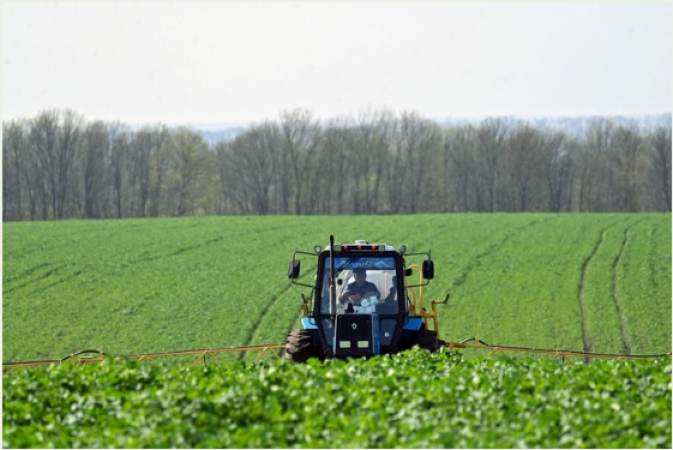
Bulgaria: In his granary in central Bulgaria, Angel Vukodinov is furious about the stacks of unsold sunflower seeds. Like other farmers in eastern EU countries, he attributes the mess to an influx of grain from Ukraine.
After Russia's invasion last year disrupted the nation's traditional Black Sea shipping lanes, the European Union has permitted Ukraine to export agricultural goods through the bloc.
The move, according to farmers in eastern EU states, flooded the market and caused a sharp decline in prices in their nations. The EU has offered financial assistance for farmers who have been harmed by the influx in response.
Also Read: Man sentenced to life in prison in Paris for bombing a synagogue in 1980
We have nothing against the Ukrainian people, but the EU's offer of compensation for our losses is a joke," said Vukodinov, 61, a farmer in the town of Saedinenie in central Bulgaria for more than 30 years.
Authorities in Bulgaria, Hungary, Poland, and Slovakia announced last week that they would temporarily ban Ukrainian grains in response to protests; however, goods are still permitted to transit through these countries while the EU negotiates a resolution.
Following last year's Russian blockade of the Black Sea, EU member states agreed to allow the import of specific goods from Ukraine without quantity limitations or customs inspection.
The merchandise was intended for Africa and the Middle East, but it became stuck due to logistical issues, including Bulgaria's subpar infrastructure.
"The granaries are full, there is no market at all, no demand for any farm produce... on top of the price dumping," said Danka Marincheshka, the production manager at the farm owned by Vukodinov's family.
According to data from the Bulgarian Ministry of Agriculture, half of Ukraine's total sunflower seed exports to the EU last year—or approximately 940,000 tons—were imported into the EU's poorest member.
Also Read: The UK might dispatch troops to Sudan to evacuate its citizens
Romania's neighbour came in second with nearly 360,000 tonnes. According to Florentin Bercu, a union representative for Romania, "the Romanian and EU authorities were unfair to us because, contrary to what they promised, a big part of the grain, which was due to only transit Romania, was left here."
In Bulgaria, the market for sunflower seeds has "oversaturated," according to Marin Iliev, a member of the Plovdiv Union of Grain Producers' management board.
Nobody gave a damn about what was going on. The market overflowed, prices dropped, and these streams that had been trickling in became full-flowing rivers, the farmer continued.
Prices peaked at around 870 euros ($950) per tonne in March 2022, immediately following Russia's invasion of Ukraine, but have since dropped to about 360 euros per tonne, which, according to Iliev, does not cover production costs, including higher fertiliser prices.
However, Nikolay Valkanov, director of the Sofia-based think tank InteliAgro, claimed that a "aristocracy of big farmers" had held the nation "hostage" by refusing to sell produce the previous year in an effort to drive up prices.
Ukrainian sunflower seeds sold in Bulgaria last year on average cost $690 per tonne. If these are dumping prices, please let me know. Why didn't the farmers in Bulgaria sell then? He informed AFP.
After months of farmer protests and blockades, the European Commission offered a 56 million euro package for farmers in February.
Brussels proposed emergency measures this week in addition to providing an additional 100 million euros in aid to ensure that grain could only be imported for export into Poland, Slovakia, Hungary, Romania, and Bulgaria.
Also Read: Middle Eastern odours and the spirit of Eid arrive in Bangladesh
There hasn't been any permanent solution found yet, and more discussions will take place in the coming days.
The Bulgarian farmer, Iliev, said: "Brussels is attempting to contain the dispute, but the uncertainty persists." We would feel more secure if solidarity corridors were maintained in actuality.